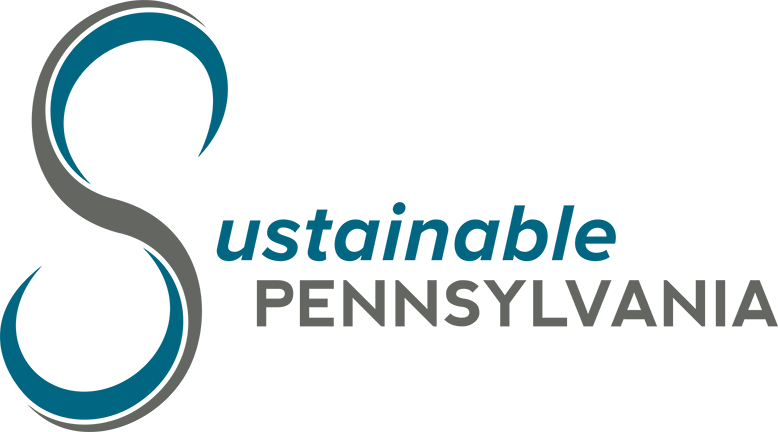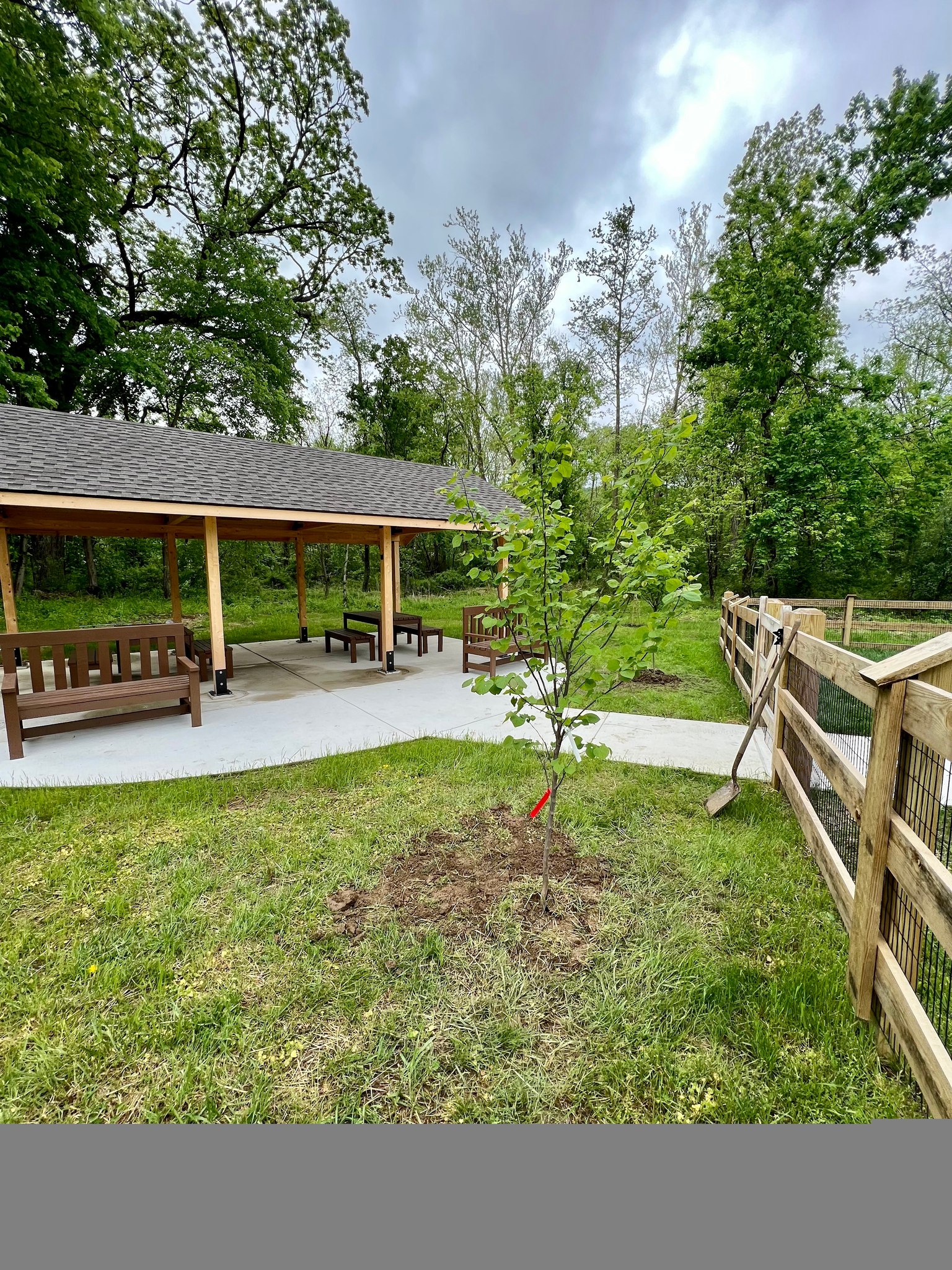—
Current Assessment:
10/02/2019
10/02/2019
Assessment History:
Education
Cooperation
Question:
Municipal planning is coordinated with the school district and the two meet together at least once per year.
Municipal planning is coordinated with the school district and the two meet together at least once per year.
Answer:
A. Yes
A. Yes
Notes:
Engagement
Question:
Municipality works with schools and local nonprofits/community organizations to engage students about community issues such as waste reduction and recycling, public safety, wellness, conservation, nature, etc.
Municipality works with schools and local nonprofits/community organizations to engage students about community issues such as waste reduction and recycling, public safety, wellness, conservation, nature, etc.
Answer:
A. Yes
A. Yes
Notes:
Environmental Stewardship
Green Infrastructure
Question:
Tree and woodlands protection and management policies are in place (for example, community forestry plan and canopy goal; tree planting programs; tree maintenance programs; tree hazard and health assessment projects; computerized assessment of municipal trees, Tree/woodland replacement criteria in ordinances, etc.).
Tree and woodlands protection and management policies are in place (for example, community forestry plan and canopy goal; tree planting programs; tree maintenance programs; tree hazard and health assessment projects; computerized assessment of municipal trees, Tree/woodland replacement criteria in ordinances, etc.).
Answer:
A. Yes
A. Yes
Notes:
Question:
Low impact and green development projects, as well as techniques (pervious pavement, bioswales, cisterns, woodland and steep slope protection) are fostered through incentives, ordinances and design guidelines.
Low impact and green development projects, as well as techniques (pervious pavement, bioswales, cisterns, woodland and steep slope protection) are fostered through incentives, ordinances and design guidelines.
Answer:
A. Yes
A. Yes
Notes:
Question:
Written policies exist and ordinances and incentives have been enacted to conserve environmentally and ecologically sensitive places (for example, slopes over 25%, slide prone soils and geology, springs and vernal pools, mature woodlands, Natural Heritage Areas, etc.) in order to protect public safety and natural resources while using green infrastructure for stormwater management.
Written policies exist and ordinances and incentives have been enacted to conserve environmentally and ecologically sensitive places (for example, slopes over 25%, slide prone soils and geology, springs and vernal pools, mature woodlands, Natural Heritage Areas, etc.) in order to protect public safety and natural resources while using green infrastructure for stormwater management.
Answer:
A. Yes
A. Yes
Notes:
Question:
Policies, plans and ordinances protect wetlands and waterways and their buffers.
Policies, plans and ordinances protect wetlands and waterways and their buffers.
Answer:
A. Yes
A. Yes
Notes:
Water Use, Conservation and Quality
Question:
Sufficient investments are being made to the water, sewer, and stormwater systems per real costs and keeping pace with maintenance and operations.
Sufficient investments are being made to the water, sewer, and stormwater systems per real costs and keeping pace with maintenance and operations.
Answer:
A. Yes
A. Yes
Notes:
Question:
Water provider(s) prioritize improving service to existing developed areas as opposed to opening up new areas to development.
Water provider(s) prioritize improving service to existing developed areas as opposed to opening up new areas to development.
Answer:
A. Yes
A. Yes
Notes:
Question:
The municipality utilizes an Integrated Municipal Stormwater and Wastewater Planning Approach (as described by EPA) to identify the municipality?s priorities for projects and includes a description of how the proposed priorities reflect the relative importance of adverse impacts on human health and water quality and the municipality?s financial capability. See: http://cfpub.epa.gov/npdes/integratedplans.cfm
The municipality utilizes an Integrated Municipal Stormwater and Wastewater Planning Approach (as described by EPA) to identify the municipality?s priorities for projects and includes a description of how the proposed priorities reflect the relative importance of adverse impacts on human health and water quality and the municipality?s financial capability. See: http://cfpub.epa.gov/npdes/integratedplans.cfm
Answer:
A. Yes
A. Yes
Notes:
Question:
The municipality actively encourages water conservation and efficiency measures in the community and among businesses.
The municipality actively encourages water conservation and efficiency measures in the community and among businesses.
Answer:
A. Yes
A. Yes
Notes:
Question:
Low impact development and onsite stormwater infiltration is encouraged.
Low impact development and onsite stormwater infiltration is encouraged.
Answer:
A. Yes
A. Yes
Notes:
Diversity, Equity and Inclusion
Human Resources
Question:
The municipality has a written municipal policy prohibiting discrimination and valuing diversity and inclusion.
The municipality has a written municipal policy prohibiting discrimination and valuing diversity and inclusion.
Answer:
A. Yes
A. Yes
Notes:
Question:
Measures are taken to ensure a wide range of candidates are interviewed for all municipal job openings i.e., the Rooney Rule.
Measures are taken to ensure a wide range of candidates are interviewed for all municipal job openings i.e., the Rooney Rule.
Answer:
A. Yes
A. Yes
Notes:
Housing
Sustainable Neighborhoods
Question:
The municipality utilizes a system for collection of delinquent taxes and fees in order to mitigate blight and abandonment.
The municipality utilizes a system for collection of delinquent taxes and fees in order to mitigate blight and abandonment.
Answer:
A. Yes
A. Yes
Notes:
Question:
Staffing is in place sufficient to enforce building and maintenance codes.
Staffing is in place sufficient to enforce building and maintenance codes.
Answer:
A. Yes
A. Yes
Notes:
Question:
The municipality has elected to administer and enforce PA's statewide Uniform Construction Code (UCC).
The municipality has elected to administer and enforce PA's statewide Uniform Construction Code (UCC).
Answer:
A. Yes
A. Yes
Notes:
Local Economy
Material Use, Waste, and Recycling
Question:
All municipal buildings have an active recycling program.
All municipal buildings have an active recycling program.
Answer:
A. Yes
A. Yes
Notes:
Question:
There is an active public informational program to encourage citizens to reduce waste and recycle.
There is an active public informational program to encourage citizens to reduce waste and recycle.
Answer:
A. Yes
A. Yes
Notes:
Question:
Comprehensive land use/development plan is current, addresses impacts to neighboring communities, and incorporates sustainability principles.
Comprehensive land use/development plan is current, addresses impacts to neighboring communities, and incorporates sustainability principles.
Answer:
A. Yes
A. Yes
Notes:
Land Use and Transportation
Green Space
Question:
The zoning ordinance provides for or accommodates a full range of housing opportunities throughout the community.
The zoning ordinance provides for or accommodates a full range of housing opportunities throughout the community.
Answer:
A. Yes
A. Yes
Notes:
Question:
The greenspace/open space plan has benchmarks and results are reported annually to the public.
The greenspace/open space plan has benchmarks and results are reported annually to the public.
Answer:
A. Yes
A. Yes
Notes:
Question:
The comprehensive plan addresses the community benefits of and need for expanding housing choice.
The comprehensive plan addresses the community benefits of and need for expanding housing choice.
Answer:
A. Yes
A. Yes
Notes:
Question:
Sustainable landscape maintenance practices are in place for parks and municipal grounds.
Sustainable landscape maintenance practices are in place for parks and municipal grounds.
Answer:
A. Yes
A. Yes
Notes:
Mobility
Question:
Alternate transportation (e.g. transit, inter-modal, multi-modal, bicycle/pedestrian) are accommodated and promoted.
Alternate transportation (e.g. transit, inter-modal, multi-modal, bicycle/pedestrian) are accommodated and promoted.
Answer:
A. Yes
A. Yes
Notes:
Question:
Trails for walking and bicycling are being developed or maintained
Trails for walking and bicycling are being developed or maintained
Answer:
A. Yes
A. Yes
Notes:
Community
Question:
A natural resource inventory has been developed for the community within the last 7 years as part of the comprehensive plan.
A natural resource inventory has been developed for the community within the last 7 years as part of the comprehensive plan.
Answer:
A. Yes
A. Yes
Notes:
Question:
The comprehensive plan and ordinances promote pedestrian-oriented, dense, walkable, mixed-use development (in existing and proposed development), and redevelopment in the core or town center.
The comprehensive plan and ordinances promote pedestrian-oriented, dense, walkable, mixed-use development (in existing and proposed development), and redevelopment in the core or town center.
Answer:
A. Yes
A. Yes
Notes:
Question:
Up-to-date ordinances for zoning and subdivision/land development are in place to implement the comprehensive plan.
Up-to-date ordinances for zoning and subdivision/land development are in place to implement the comprehensive plan.
Answer:
A. Yes
A. Yes
Notes:
Question:
Municipality has an active litter prevention/clean-up program.
Municipality has an active litter prevention/clean-up program.
Answer:
A. Yes
A. Yes
Notes:
Governance and Community Engagement
Local and Regional Cooperation
Question:
Intergovernmental Cooperative Agreements include conflict resolution provisions.
Intergovernmental Cooperative Agreements include conflict resolution provisions.
Answer:
A. Yes
A. Yes
Notes:
Question:
The municipality utilizes Intergovernmental Cooperative Agreements (ICA) to engage in multi-municipal endeavors.
The municipality utilizes Intergovernmental Cooperative Agreements (ICA) to engage in multi-municipal endeavors.
Answer:
A. Yes
A. Yes
Notes:
Question:
Municipality is an active participant in a Council of Governments.
Municipality is an active participant in a Council of Governments.
Answer:
A. Yes
A. Yes
Notes:
Sustainability
Question:
Municipality has or is in the process of retrofitting street lights and traffic signals to LED bulbs.
Municipality has or is in the process of retrofitting street lights and traffic signals to LED bulbs.
Answer:
A. Yes
A. Yes
Notes:
Public Safety
Question:
Municipality maintains updated public safety mutual aid agreements with neighboring municipalities and shares resources.
Municipality maintains updated public safety mutual aid agreements with neighboring municipalities and shares resources.
Answer:
A. Yes
A. Yes
Notes:
Question:
Municipality participates in a regional service program or contracts services to or through other municipalities for fire, police, or EMS.
Municipality participates in a regional service program or contracts services to or through other municipalities for fire, police, or EMS.
Answer:
A. Yes
A. Yes
Notes:
Municipal Operations
Question:
Professional staff are employed or retained, in the areas of budgeting and finance.
Professional staff are employed or retained, in the areas of budgeting and finance.
Answer:
A. Yes
A. Yes
Notes:
Question:
A revenue-expenditure trend analysis is conducted annually.
A revenue-expenditure trend analysis is conducted annually.
Answer:
A. Yes
A. Yes
Notes:
Question:
Municipality routinely evaluates ability to ensure that revenue is sufficient to maintain public infrastructure, i.e., road, water, sewer, stormwater (community has an asset management based budget system).
Municipality routinely evaluates ability to ensure that revenue is sufficient to maintain public infrastructure, i.e., road, water, sewer, stormwater (community has an asset management based budget system).
Answer:
A. Yes
A. Yes
Notes:
Question:
5-10 percent of operating funds are carried over year to year.
5-10 percent of operating funds are carried over year to year.
Answer:
A. Yes
A. Yes
Notes:
Question:
Taxation takes a balanced approach applicable to all sectors of municipal services provided and fees satisfy cost recovery.
Taxation takes a balanced approach applicable to all sectors of municipal services provided and fees satisfy cost recovery.
Answer:
A. Yes
A. Yes
Notes:
Community Engagement
Question:
All municipal-sponsored events have a sustainability-awareness component
All municipal-sponsored events have a sustainability-awareness component
Answer:
A. Yes
A. Yes
Notes:
Question:
Municipality communicates with the public via a regularly scheduled newsletter or regularly updated web based communications.
Municipality communicates with the public via a regularly scheduled newsletter or regularly updated web based communications.
Answer:
A. Yes
A. Yes
Notes:
Question:
A Historic Review Commission is active.
A Historic Review Commission is active.
Answer:
A. Yes
A. Yes
Notes:
Question:
Civic engagement, public participation and transparency are regularly assessed and facilitated.
Civic engagement, public participation and transparency are regularly assessed and facilitated.
Answer:
A. Yes
A. Yes
Notes:
Healthy Communities
Healthy People
Question:
Outdoor recreation opportunities, amenities, and lifestyles are promoted.
Outdoor recreation opportunities, amenities, and lifestyles are promoted.
Answer:
A. Yes
A. Yes
Notes:
Question:
Programs by local government, or in cooperation with the non-profit and private sector, exist to address community health concerns, i.e. exercise programs, feeding programs for children and the elderly, crime watches, accessible health care, exercise away from areas of air pollution, etc.
Programs by local government, or in cooperation with the non-profit and private sector, exist to address community health concerns, i.e. exercise programs, feeding programs for children and the elderly, crime watches, accessible health care, exercise away from areas of air pollution, etc.
Answer:
A. Yes
A. Yes
Notes:


